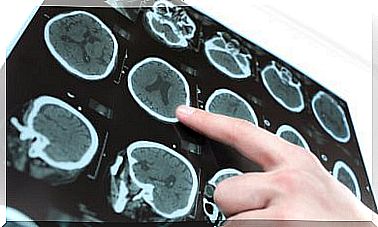Reduce The Symptoms Of Menopause With These Foods
A balanced diet can help you improve the symptoms of menopause and prepare the body for that stage full of physical and emotional changes.

The symptoms of menopause are part of an inescapable vital process in a woman’s life. During this stage, many changes occur in the body, some of which are accompanied by a series of specific characteristics: headaches, insomnia or temperature changes, among others.
It is important not to be overwhelmed by this situation, since the only thing it will cause is an added discomfort. Menopause is completely normal and natural.
Here are a series of dietary guidelines to help ease the symptoms of menopause. It is important, however, that you consult with your gynecologist and endocrinologist first.
Relieve symptoms of menopause with diet
Menopause begins when the ovaries stop producing eggs . This usually occurs between the ages of 45 and 55, as a result of decreased levels of progesterone and estrogens.
As suggested by this study carried out by a team from the “Manuel Fajardo” University of Medical Sciences (Cuba), it is common to suffer from hot flashes, sweating, nervousness and irritability .
Fortunately, living a healthy lifestyle and eating well can help you cope with these changes. Additionally, as the British Nutrition Foundation notes, dietary adjustments can also help reduce the risk of cardiovascular disease.
Some of the most recommended foods are:
Sources of tryptophan

This amino acid is key in the production of serotonin, a neurotransmitter that affects some of the changes associated with menopause, such as emotional disturbances, sleep disturbances and appetite. This is how this study carried out by Dr. Bocchino exposes it .
Some of the foods that are a source of tryptophan are:
- Turkey meat
- Fish
- Spinach
- Cottage cheese (cottage cheese)
- Oatmeal
- Sesame and sunflower seeds
Omega-3, a great ally
Omega 3 fatty acids are another highly recommended nutrient during the climacteric stage. According to this study carried out by a team from the University of Vigo Hospital Complex (Spain), they have a beneficial effect by reducing cardiovascular risk.
Omega-3 foods:
- Fatty fish
- Chia seeds
- Walnuts
- Canola or rapeseed oil
Isoflavones and hot flashes

Hot flashes are one of the most bothersome symptoms of menopause. Many women are unable to do their daily activities or sleep as they should.
In these cases, it is usually important to reduce the consumption of the following elements:
- Fats
- Sugars
- Foods too spicy
- Caffeine
On the other hand, as this study carried out by the National Institute of Endocrinology of Cuba explains , there are some estrogenic plants that could serve as coadjuvants to this problem.
Those that contain isoflavones are usually recommended , especially soy. You can start to include it in your diet through milk or salads.
Other recommended foods during this stage are:
- Tofu
- Tempeh
- Green Tea
- Vegetables
Sources of vitamins and minerals
During menopause, the number of estrogens is reduced. This gives rise to the aging process of the tissues more quickly, according to this research carried out by a team from the General University Hospital of Alicante.
To prevent premature aging associated with reduced estrogen, try eating more foods containing antioxidant vitamins and minerals:
- Foods with vitamin C: peppers, kiwis , broccoli, blackberries and citrus.
- Foods with zinc: seafood, meat, seeds, lentils, and beans.
- Vitamin A: carrots, beets, tomatoes and any red food.
These will help you maintain the natural elasticity of the skin, which you must complement with proper hydration.
Calcium is good for your bones
The decrease in the production of estrogens negatively affects the bones, as expressed in this study by Dr. Lugones Botell. This is a serious problem, because fractures can occur much more easily.

For this reason, calcium is often recommended. This mineral is present in a percentage of 1% to 2% in the body, mainly in the bones.
However, once premenopause arrives, it is important to increase its consumption. The amount needed for women in menopause is 1200 mg per day.
Foods with calcium are:
- Milk, yogurt and cheese
- Kale, broccoli and chinese cabbage
- Fish with edible soft bones, such as canned sardines and salmon
- Soy milk and rice
- Tofu
- The Orange juice
- All green vegetables
- The egg
Control the weight

Weight gain is one of the symptoms of menopause that most affects women’s self-esteem. Likewise, it increases the risk of suffering from cardiovascular diseases, as suggested by this study carried out by a team from Harvard University.
Therefore, it is important to follow a series of guidelines in this regard:
Make sure you get enough fiber
You will easily achieve this by consuming fruits, vegetables, and whole grains. The fiber, In addition to protecting the cardiovascular system, it increases the feeling of satiety (as explained in this research by Dr. Slavin ). In this way, you will avoid snacking between meals.
Move on! Choose a sport and practice it
If you’ve never exercised on a regular basis, this is the time. You can choose from hundreds of disciplines, both alone and in a group.
If you have any questions, you just have to consult a gym or a trainer, and they will help you develop an exercise routine adapted to your needs.
Visit an endocrinologist
Gaining weight during menopause will be easier if you don’t follow a balanced menu. Getting carried away by generalized diets is not a good idea, because you have specific requirements to cover.
P Or that, it is best to go to a certified specialist. He will know how to advise you correctly and without putting your health at risk.
Stay positive
It is normal to feel somewhat dejected before the changes that are experienced. You have to think that these are part of life, and that, as such, they should be accepted with the best possible humor.
If you feel at any time that the situation is overwhelming you on a psychological level, do not hesitate to consult a specialist. It is important to ask for help if you think you may need it.









